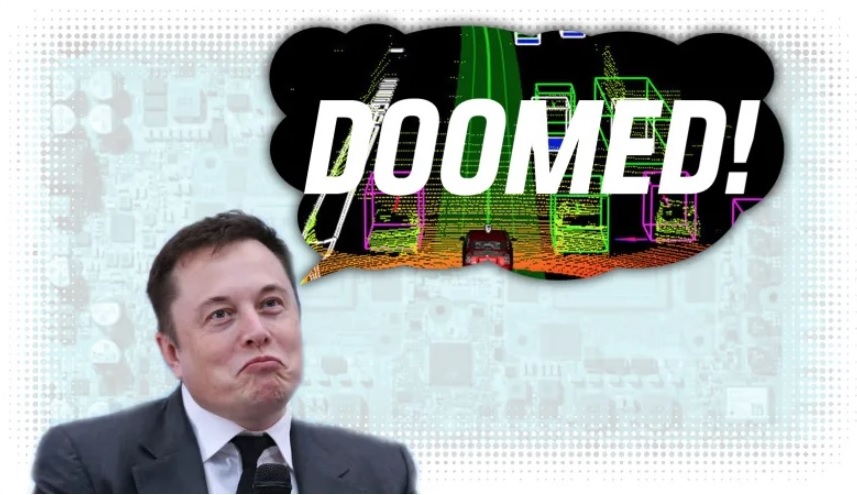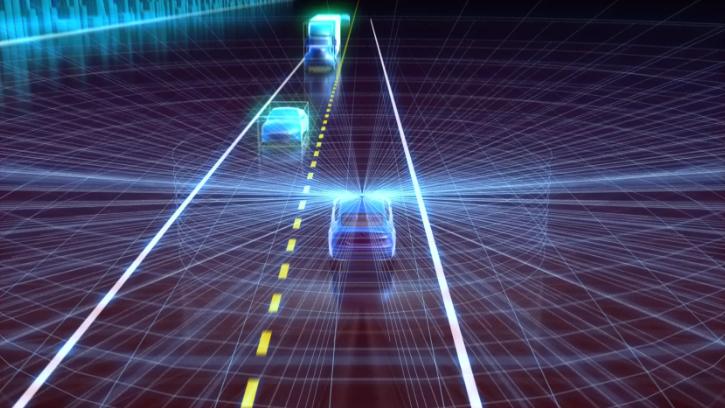The $500 LiDAR Sensor Will Probably Revolutionise Autonomous Vehicles. May Elon Musk Be Wrong?
Viswamitra Jayavant - Jul 18, 2019

Although many people are considering it the spear-point tech for the development of fully autonomous vehicles, the pioneer of this tech in the consumer market - Elon Musk - does not.
- X Platform Poised to Introduce In-App Crypto and Stock Trading Soon
- Elon Musk Pivots: SpaceX Prioritizes Lunar Metropolis Over Martian Colony
- Is Elon Musk on the Path to Becoming the World's First Trillionaire?
In recent years, the techno-sphere has got to acclimatize to the term LiDAR (Light Detection And Ranging) as autonomous vehicles become more popular. Starting with Tesla, the automobile and a vast number of others are catching up.
LiDAR utilizes laser pulses instead of acoustic waves in traditional RADAR tech to emulate a 3D map of its surrounding environment. Although many people are considering it the spear-point tech for the development of fully autonomous vehicles, the pioneer of this tech in the consumer market - Elon Musk - does not.

"Fool's Errand"
“LiDAR is a fool’s errand,” said Musk during a Tesla conference called Tesla’s Autonomy Day in April. True to its name, the point of the conference is providing the attendees with a general view of the tech and the direction that the company is heading in to help bring it to worldwide’s traffic flows.
“Anyone relying on LiDAR is doomed. Doomed!” Musk warned, citing how LiDAR is prohibitively expensive and unnecessary. At the time, Musk was right on all counts: LiDAR is expensive and there are numerous other techs that could theoretically replace it.
A $500 Solution
At the moment, it is the only tech that is in a widespread application, so we might have to place a rain check on top of that matter. But when it comes to expense, a startup - Luminar - has succeeded in proving what Musk thought impossible is, in fact, feasible: Creating LiDAR sensors at a fraction of its current pricing.
The LiDAR developed by Luminar is named Iris, and the sensor has stepped up from its experimental form into production-ready. Unlike the top of the line LiDAR module that the leading manufacturer of the sensor category - Velodyne - that costs up to $75,000 per module. The Iris system is $500 top to bottom, a 150-fold price cut.

According to Ben Kortlang, the founding partner at G2VP - Luminar’s chief investor, the sensor can meet all of the performance, safety, and certainly, the budget of manufacturers. Certainly, this is the kind of technologic revolution that could change autonomous vehicles for good. However, we still don’t know for sure how the cheap sensor compares to the top of the line in spite of the marketing talks.
Promising
The startup is expecting its products to appear on commercial autonomous cars by a rather optimistic timeline of 2022. In comparison, that is a deadline two years after Musk swore that his fleet of fully autonomous Tesla would start ferrying passengers. If he could fulfill his promise (Which is dubious, considering his track record of being chronically late) before Luminar and their sensors are fielded and with a different sensor tech than LiDAR, he could speak to the world that LiDAR is redundant. Though even then, his argument that LiDAR is expensive can no longer be applied.
Either way, the race to autonomy only gets more intense and could ultimately prove to be beneficial to the world and the tech industry as a whole.
Featured Stories

Features - Jan 29, 2026
Permanently Deleting Your Instagram Account: A Complete Step-by-Step Tutorial

Features - Jul 01, 2025
What Are The Fastest Passenger Vehicles Ever Created?

Features - Jun 25, 2025
Japan Hydrogen Breakthrough: Scientists Crack the Clean Energy Code with...

ICT News - Jun 25, 2025
AI Intimidation Tactics: CEOs Turn Flawed Technology Into Employee Fear Machine

Review - Jun 25, 2025
Windows 11 Problems: Is Microsoft's "Best" OS Actually Getting Worse?

Features - Jun 22, 2025
Telegram Founder Pavel Durov Plans to Split $14 Billion Fortune Among 106 Children

ICT News - Jun 22, 2025
Neuralink Telepathy Chip Enables Quadriplegic Rob Greiner to Control Games with...

Features - Jun 21, 2025
This Over $100 Bottle Has Nothing But Fresh Air Inside

Features - Jun 18, 2025
Best Mobile VPN Apps for Gaming 2025: Complete Guide

Features - Jun 18, 2025
A Math Formula Tells Us How Long Everything Will Live
Read more

Mobile- Feb 17, 2026
Anticipating the Samsung Galaxy S26 and S26+: Key Rumors and Specs
The Samsung Galaxy S26 series is on the horizon, sparking excitement among tech enthusiasts.

Mobile- Feb 16, 2026
Xiaomi Launches Affordable Tracker to Compete with Apple's AirTag
For users tired of ecosystem lock-in or high prices, the Xiaomi Tag represents a compelling, no-frills option that delivers core functionality at a fraction of the cost.

ICT News- Feb 18, 2026
Google's Project Toscana: Elevating Pixel Face Unlock to Rival Apple's Face ID
As the smartphone landscape evolves, Google's push toward superior face unlock technology underscores its ambition to close the gap with Apple in user security and convenience.
Comments
Sort by Newest | Popular